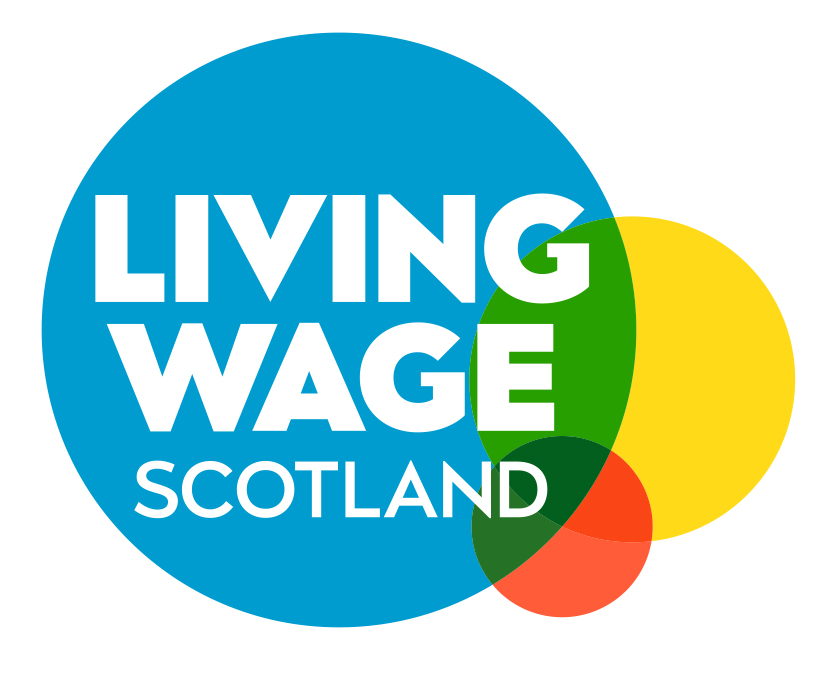- If just a quarter of Scotland’s low-paid workers were given a pay rise to the real Living Wage, it could provide an extra £114m boost to the economy.
- 221,000 thousand workers in Scotland currently earn below the real Living Wage
- The real Living Wage is £10.90 across the UK and is the only the wage rate based on the true cost of living.
- There are currently over 2,900 accredited Living Wage employers in Scotland including SSE, abrdn, Barrs, Mackie’s of Scotland, & D.C. Thomson.
Wider adoption of the real Living Wage could provide a significant economic boost to Scotland’s economy, new research shows today.
Research commissioned by the Living Wage Foundation and conducted by the Smith Institute, the Local Living Wage Dividend, found that if just a quarter of those earning less than the real Living Wage saw their pay rise to the real Living Wage, the increase in wages, productivity and spending would deliver over £114m back into Scotland’s economy.
With Scottish households facing a cost-of-living crisis, and economic growth stagnant, today’s research shows how a real Living Wage could tackle both, and support a high-growth, high-wage economy in Scotland.
Since the Living Wage campaign began in 2001 over £370m in extra wages has been delivered to people in Scotland. There are now over 2,900 Living Wage accredited employers in Scotland, including SSE, abrdn, Barrs, Mackie’s of Scotland, & D.C. Thomson. Because of their commitment, over 59,000 workers in Scotland receive an annual pay rise in line with the cost of living.
The real Living Wage is the only wage rate calculated based on the cost of living. It is currently £10.90 across the UK. For a full- time worker, that represents £2,730 a year more than someone earning the government’s National Living Wage.
Peter Kelly, Director of Poverty Alliance, said:
“Paying the Living Wage has always been about doing the right thing. But with prices rising higher than ever, it’s never been more important that employers commit to at least the real Living Wage to help release the grip of poverty in Scotland.
We commend the leadership of over 2,900 Living Wage employers in Scotland and call on many more to pay the real Living Wage and become accredited. We all need an income that is enough to cover our needs and protect us from poverty, and it’s only right that employers play their part by paying a wage that covers the cost of living.”
Kenny Preston, Machine Operator at Allied Vehicles Group, said:
“The Living Wage has made a huge difference personally to myself and family as I am the only income in my household, my wife is the carer for our son who has additional support needs. While there is a cost-of-living crisis, knowing Allied Vehicles has committed to being a Living Wage employer helps to take the burden from a lot of people with regards to utility bills, food, fuel and rent or mortgages. Things are tight just now for a lot of people, and it shows that Allied Vehicles are prepared to go that extra mile investing and showing faith in the workforce.”
Carla Tait, Dog First Aid Trainer, Edinburgh Dog and Cat Home, said:
“The real Living Wage is, for me, the difference between scraping by each month and having some money left at the end of each month to treat myself, put towards the house or save towards something like a holiday. This has had a big impact on my stress levels and mental well-being. Aside from the financial aspect, the real Living Wage makes me feel valued by my employers, in contrast to previous minimum wage jobs I’ve had where I’ve felt disposable and of little value.”
Christine McCaig, Interim Manager at Living Wage Scotland, said:
‘Ensuring that staff are paid at least the real Living Wage is the single most important thing employers can do to support their people with rising living costs.
Businesses who pay the real Living Wage reap the benefits in terms of better recruitment and retention, less sickness absence and a more motivated workforce while helping to redistribute wealth more evenly and boost the local economy.”

